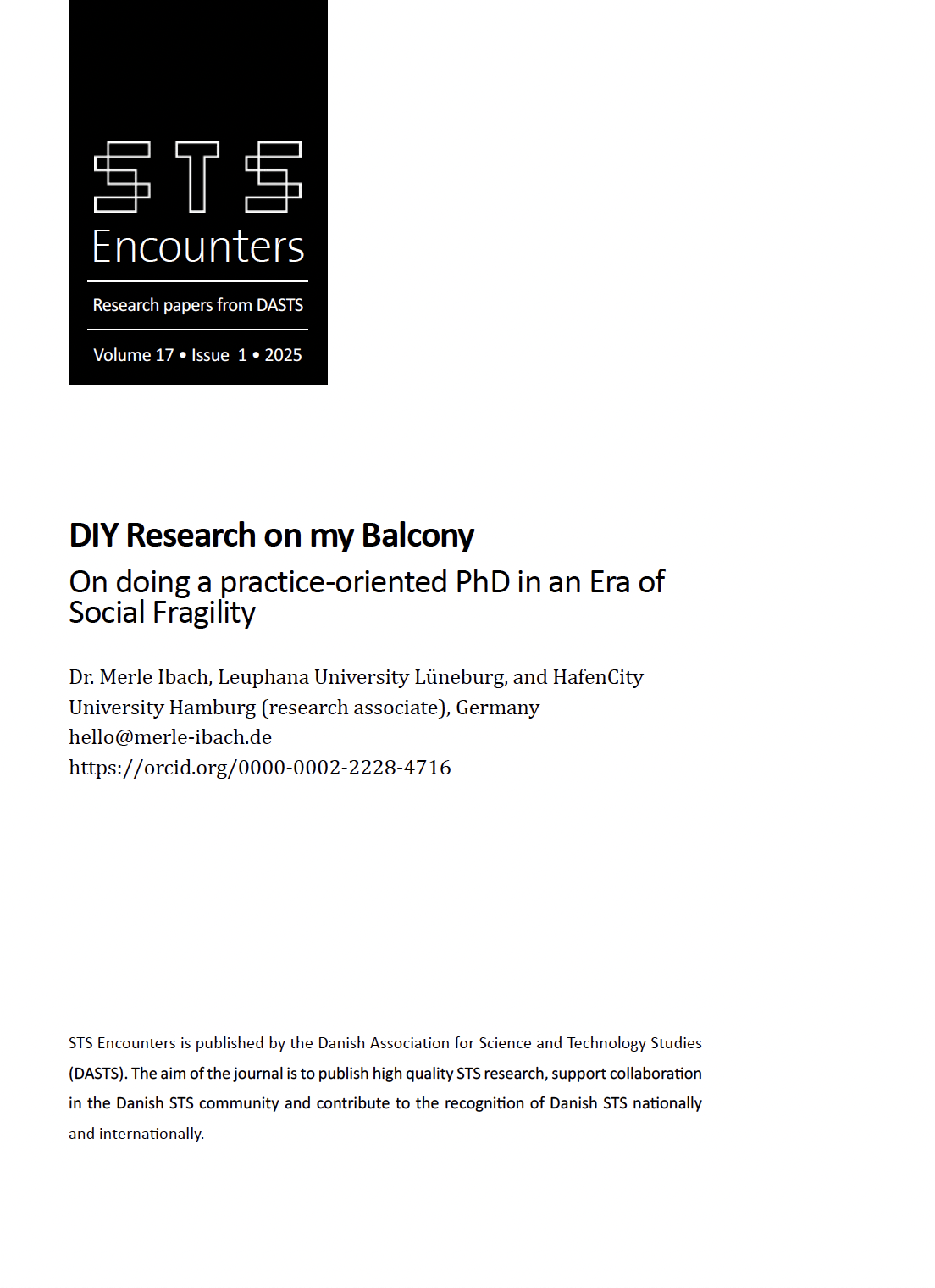DIY Research on my Balcony
On doing a practice-oriented PhD in an Era of Social Fragility
DOI:
https://doi.org/10.7146/stse.v17i1.156618Keywords:
Practice-based PhD, design anthropology, DIY research, inventive methods, care, polycrisis, urban living labsAbstract
This paper explores the intersection of DIY making cultures and ethnographic research in the context of the COVID-19 pandemic. The global crisis profoundly disrupted my doctoral research, originally focused on prototyping alternative futures through urban living labs. Confronted with lockdown restrictions and social distancing measures, my research site shifted unexpectedly to my own balcony, where I engaged in DIY practices such as building a chair from reclaimed materials and fermenting sourdough. This embodied engagement with making not only stabilized my sense of agency but also became a methodological lens to rethink knowledge production in times of crisis.
By reflecting on my personal experiences, I argue that DIY practices during the pandemic evolved beyond leisure activities to become meaningful epistemic and care practices, that embrace long-standing local traditions. This shift in Western perception highlights the socio-material entanglement of making as a response to uncertainty, reconfiguring DIY from a discourse of self-sufficiency to one of social care and resilience. In doing so, my study aligns with inventive methodologies in Science and Technology Studies, which emphasize knowledge production through material engagement. The pandemic destabilized traditional ethnographic boundaries, prompting questions about the field, researcher-subject relationships, and disciplinary constraints in social sciences.
In the paper, I suggest that DIY making not only offers a means of coping but also illuminates new ways of understanding and constructing knowledge. This re-situated and practice-based PhD research contributes to broader discussions on inventive methodologies, feminist technoscience, and the role of materiality in ethnographic inquiry, advocating for a more caring and inclusive approach to knowledge production.

Downloads
Published
How to Cite
Issue
Section
License
Copyright (c) 2025 Merle Ibach

This work is licensed under a Creative Commons Attribution-NonCommercial-ShareAlike 4.0 International License.
Starting with volume 15, articles published in STS Encounters are licensed under Attribution-NonCommercial-ShareAlike 4.0 International (CC BY-NC-SA 4.0). The editorial board may accept other Creative Commons licenses for individual articles, if required by funding bodies e.g. the European Research Council. Previous articles are not licensed under Creative Commons. In these volumes, all rights are reserved to the authors of the articles respectively.




